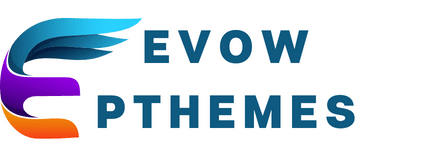Registering with the Care Quality Commission (CQC) involves detailed steps and strict criteria. Understanding required documents, eligibility, and application nuances can prevent delays and refusals. Expert guidance simplifies this complex process, helping healthcare providers meet compliance smoothly and avoid common pitfalls. Access to clear instructions and professional support turns a daunting task into a manageable one, ensuring your registration stays on track from start to finish.
Essential Guidance for CQC Registration Process
Navigating the cqc registration process can seem complex and overwhelming. To facilitate success, a clear understanding of each phase is essential. Key stages include pre-application, application, post-approval, and ongoing compliance. Preparation before submitting your application is particularly critical. This involves gathering all necessary documentation, completing relevant staff checks, and ensuring premises are ready for inspection.
A lire aussi : Discovering spa breaks in bath: a guide to ultimate relaxation and wellness
Thorough preparation significantly reduces delays and rejection risks during the process. For example, obtaining a Disclosure and Barring Service (DBS) check for the designated Responsible Person is vital, typically taking around 14 days longer if issues arise. Once ready, submitting a well-documented application completes the pre-application phase.
During the application step, accuracy and completeness are paramount. Incomplete forms or missing supporting documents such as manager forms, financial statements, or policy frameworks often lead to rejection. The regulator conducts initial checks to verify the form’s correctness and supporting evidence. Ensuring that all elements are aligned with CQC standards can streamline this process.
Dans le meme genre : Industrial air compressor installation: key steps for efficiency and safety
Professional support services play a pivotal role in securing timely and successful registration outcomes. They assist with form completion, policy development, and preparing for inspections, which can extend over several months. These support providers also help manage expectations, keep applicants informed of progress, and ensure compliance with evolving regulations.
Post-approval, maintaining compliance involves regular updates to policies, conducting internal audits, and readiness for periodic inspections. Continuous adherence to CQC’s five key standards Safe, Effective, Caring, Responsive, and Well-led is essential to sustain registration status and achieve favorable ratings, including the prestigious ‘Outstanding’.
The Help With CQC Application service guides providers through every phase, minimizing mistakes that could delay registration or lead to non-compliance. Understanding the detailed requirements, including registration criteria, costs, timelines, and necessary documentation, empowers providers to plan effectively.
The application process is not instant; traditional registration can take from 6 to 11 months, depending on the complexity and completeness of submitted data. Urgent registration options are available but require additional guidance to ensure full compliance. Overall, employing expert assistance markedly improves the chances of a smooth, successful registration an essential step for legal operation within the regulated health and social care market.
Understanding CQC Registration Requirements
Eligibility and Scope of Registration
To determine who needs to register with the Care Quality Commission (CQC), start with the definition of regulated activities. Any provider including individuals, partnerships, or organizations delivering regulated activities in England must complete the CQC registration process before operating legally. Key examples include personal care, nursing services, treatment of disease, and diagnostic procedures. Private practices outside England are not mandated to comply with CQC registration requirements, but may require registration with local regulatory bodies in Scotland, Wales, or Northern Ireland.
Provider types impact which care quality commission application form and documentation are required. For instance, care homes, domiciliary care agencies, and ambulance services each have tailored eligibility criteria and expected policies. Exemptions apply in certain cases for example, providers offering only non-regulated support cannot use the CQC registration portal and don’t need a certificate. However, activities such as providing medical advice, supplying nursing care, or supervising medication management always require registration and presence on the CQC registered providers list. Registration is not only a legal requirement but also assures potential clients and stakeholders that the service meets nationally recognised care standards.
Preparing Supporting Documentation
Each step in the CQC registration process demands comprehensive documentation. You must supply up-to-date policies and procedures on topics such as safeguarding, medicines management, infection control, and incident reporting. Evidence of staff training and qualifications especially for those in leadership roles must be included, along with business plans and proof of financial viability. If registering as an organization, both a registered provider and a registered manager application form are required; each must clearly address the CQC registration requirements.
A rigorous criminal record check (DBS check) for relevant roles, including managers and nominated individuals, forms a mandatory part of the process. These checks demonstrate compliance with CQC regulations on suitability. Documentation supporting premises readiness is also assessed: inspectors will review evidence showing the physical setting, equipment, and safety protocols fully match regulatory expectations. Incomplete submissions or unclear evidence almost always delay progress, so using a thorough cqc registration checklist helps avoid common errors.
Mandatory Prerequisites and Checks
Completion of certain CQC registration legal requirements is essential even before submitting the application. Controlled drug services must have a Home Office licence, while patient transport providers should supply proof of vehicle ownership or leasing. Arranging for compliance checks and planning for the site visit are vital. Inspectors will assess not only the documentation but will also conduct interviews to confirm the suitability of all key personnel involved in regulated activities.
CQC registration fees explained: fees depend on service type and size, ranging from a few thousand for smaller services to higher amounts for large providers. Payment and receipt of the correct fee is mandatory for your application to move forward. It is illegal to conduct regulated activities until you are listed in the CQC registered providers list and have been issued your certification.
Through each phase, understanding the CQC registration requirements from eligibility to document readiness and mandatory safety checks ensures that the application stands up to scrutiny and passes all legal thresholds. Applicants should refer to the latest CQC registration documentation support and seek professional cqc registration consultancy where necessary to streamline progress and reduce the risk of avoidable mistakes, delays, or compliance failures.
Step-by-Step Application Process and Key Milestones
Completing the Application Form
Completing the CQC registration application starts with selecting the appropriate application form for your planned service type. The Care Quality Commission offers a decision tree tool to direct applicants to the right forms, accounting for whether you’re registering as a new provider or as a registered manager responsible for day-to-day services. The form requires detailed provider information, service scope specifications, and clear management structures core elements that align with the main CQC registration requirements.
Ensure you detail locations, business types, and all required regulated activities accurately. Missteps at this stage, such as missing supporting evidence, incomplete personal details, or skipped sections, can result in application rejection. Common CQC registration mistakes include failing to attach Disclosure and Barring Service (DBS) documentation for key individuals or neglecting to provide a robust Statement of Purpose. Having access to assistance with CQC paperwork or professional CQC registration consultancy firms can help minimize errors and improve submission quality.
Submission, Review, and Site Inspection
After submission, the Care Quality Commission performs initial checks to ensure completeness, correctness, and all necessary supporting documentation have been received. The process timeline begins here; missing information often triggers delays, so rely on application form help for CQC and reference a CQC registration checklist to confirm accuracy.
If the documentation passes, the regulator schedules a site inspection and management interviews. Preparing for CQC inspection involves ensuring staff and premises are ready and policy documents are easily accessible. Nominated individuals and registered managers play a direct role in these inspections they must demonstrate familiarity with CQC policies and procedures and provide evidence of compliance with quality and safety regulations. Assistance with CQC paperwork or CQC registration support packages can streamline readiness for these crucial milestones.
Handling Outcomes and Regulatory Decisions
Applicants receive outcome notifications directly by email and through their CQC registration portal. If approved, you’ll receive a CQC certificate of registration, legal confirmation you can now provide regulated activities. In the event the commission requests further amendments or clarifications, respond promptly, referencing compliance documentation templates to supply missing details.
If you disagree with a regulatory decision, formal CQC registration amendments support or legal advice may be appropriate. Options include responding with additional information, requesting formal reviews, or using the CQC contact number for clarification. Proactive use of support for CQC compliance, continuous review of CQC registration updates, and consulting healthcare compliance consultants can make a difference during delays or contested decisions. Always ensure your CQC registration documentation support is up-to-date, as changes in services may require new submissions or amendments. Delays are common, but understanding CQC regulations and maintaining proper communication with the regulator can help manage expectations and secure eventual approval.
Post-Registration Management and Ongoing Compliance Support
Maintaining Compliance Standards
Precision in the CQC registration renewal process demands scheduled policy updates, continuous compliance monitoring, and recurring internal audits. To maintain effective standards, providers must conduct frequent reviews of all cqc policies and procedures this ensures alignment with the most current care quality commission application requirements and supports a robust compliance support framework for care services. Each review should result in actionable updates, reflecting regulatory changes and service evolution. Internal audits, paired with tailored staff training, reinforce these standards and keep team understanding of understanding cqc regulations high.
Preparing for CQC inspection whether initial or during ongoing audits requires documentation that accurately demonstrates compliance. Proactive gap analysis helps pinpoint weaknesses in your cqc registration checklist, preventing non-compliance penalties or poor inspection outcomes. This method of regular review is a best practice for all registered healthcare providers.
Managing Changes to Existing Registration
Any modifications to your CQC registration, such as amendments to registered locations or updates to services, must be handled with precision. Timely cqc registration updates support care sector registration guidance and maintain regulatory validity. When changing a nominated individual or manager, registered manager responsibilities should be accurately documented and communicated via the correct CQC registration portal channels.
Applying for amendments includes submitting up-to-date details through the appropriate application form for CQC, alongside supporting evidence reflecting new operational structures. Handling regulatory notifications promptly, especially during ownership, service, or managerial changes, prevents lapses in compliance and mitigates regulatory risks.
Support Services for Seamless Ongoing Compliance
Access to professional cqc registration consultancy is invaluable for continued adherence to CQC standards. Services such as policy documentation support, compliance monitoring, and compliance audit support ensure you’re prepared for the complexities of ongoing regulatory expectations. Mock inspections offer realistic scenarios to test protocols and staff readiness, mirroring actual CQC evaluation criteria.
Gap analysis and routine compliance monitoring illuminate areas for improvement and reinforce an understanding of cqc inspection outcomes. When facing regulatory inquiries, feedback, or enforcement actions, expert guidance for cqc approval provides essential navigation through escalating complexities helping you respond with clarity and promptness.
Comprehensive support, including cqc registration renewal assistance, strengthens long-term operational quality and facilitates reliable, up-to-date care home quality compliance. Adopting these strategies positions your service to consistently meet the stringent expectations set forth by the CQC and build a foundation for sustainable, continuous improvement.
Expert Assistance from CQC Medi Solutions and UK Care Consultants
Securing registration with the Care Quality Commission (CQC) is a detailed, multi-stage process where expert guidance can make a decisive difference. Effective cqc registration support spans everything from pre-application planning to successful compliance management for both new and established care providers.
Comprehensive CQC Registration Support
The path to successful registration involves rigorous steps including understanding CQC registration requirements, preparing extensive documentation, and navigating forms for both providers and registered managers. Professional consultants such as CQC Medi Solutions and UK Care Consultants focus on offering tailored cqc registration support, providing application assistance for various service types residential homes, domiciliary care agencies, and medical practices among them.
To streamline this, application assistance ensures that each required piece of evidence ranging from policies and procedures to staff qualifications meets CQC standards. Providers receive support for preparing statements of purpose, financial viability statements, and all necessary paperwork, minimising common errors that could delay or derail the cqc registration process.
Tailored Compliance Consultancy
Not every care sector or service type faces identical regulatory hurdles. A tailored compliance consultancy recognises this, delivering step-by-step application help specific to the unique requirements of, for example, mental health services versus ambulance providers. This sector-specific approach addresses the precise nature of regulated activities, legal structure, and business size, offering bespoke cqc registration support packages that can help avoid section 2 warnings and rejected submissions.
Further, continuous advice on cqc registration requirements and policy frameworks fosters ongoing regulatory alignment. Clients benefit from access to resource banks, compliance documentation templates, and real-time policy updates to help with healthcare registration and inspection readiness long after initial approval.
Achieving High Approval Rates with Expert Guidance
A high success rate begins with deep knowledge of how to register with cqc and is maintained by robust, ongoing compliance management. When expert guidance is involved, services achieve higher first-time approval percentages, as seen in several top-rated providers. Step-by-step cqc application help such as interview coaching for nominated individuals and registered managers, or preparation for site visits reinforces readiness for inspections and day-to-day regulatory scrutiny.
These cqc registration support services also include procedural guidance for special cases like registration amendments or business transfers, all reinforced by practical, up-to-date advice on evolving CQC regulations and compliance standards.
In summary, the combination of expert guidance, application assistance, and tailored compliance consultancy not only demystifies the CQC registration process but also positions care providers for lasting operational excellence under the Care Quality Commission’s regulatory framework.
Understanding the CQC Registration Process
The cqc registration process demands precise preparation, careful documentation, and ongoing compliance to meet the standards set by the Care Quality Commission (CQC). At its core, the process involves demonstrating that your service is safe, effective, caring, responsive, and well-led. Any organization planning to conduct regulated activities must engage fully with each phase to ensure proper registration and avoid common pitfalls during the care quality commission application.
Key CQC Registration Requirements
Providers must establish that they satisfy all cqc registration requirements before submitting their applications. Key elements include:
- Identification and documentation of all service locations and responsible individuals.
- Completion of Disclosure and Barring Service (DBS) checks for nominated individuals and managers.
- Preparation of required policies and procedures, such as those covering medicines management and safeguarding, which form part of the cqc registration checklist.
- Evidence of robust financial and business viability, often supported by a comprehensive financial viability statement.
Step-by-Step CQC Application Help
The process starts by confirming which regulated activities you intend to deliver and selecting the appropriate application form. Application form help for CQC is available, guiding you line-by-line to reduce errors a major source of registration delays. Assistance with CQC paperwork ensures supporting evidence manager forms, policy frameworks, and business documentation is properly assembled.
Once submitted, the care quality commission application undergoes checks for completeness and correctness. If the application meets initial standards, a site visit or interviews may follow, involving the provider and registered manager, before a decision is communicated. Ongoing cqc registration updates and guidance help address any recommended improvements during review.
Who Needs to Register With CQC and What Does It Cost?
Registration is mandatory for any business, partnership, or individual carrying out regulated activities in health or social care in England. The CQC registration for new providers covers domiciliary agencies, nursing homes, residential care homes, supported living, clinics, ambulance services, and other health settings.
CQC registration fees explained: Fees range from around £2,000 to £15,000 annually, based on service type and size. For domiciliary care providers, costs are typically at the lower end; larger care homes or specialist services incur higher fees. These are in addition to operational expenses such as insurance, staff training, premises, and compliance system setup.
CQC Registration Timeline and Compliance Support
Recent trends show the cqc registration timeline can stretch from 6 to 11 months for standard applications, with urgent cases possibly completed within 1–4 months. Delays usually stem from incomplete documentation or failure to meet CQC registration legal requirements. Accessing compliance support for care services or working with professional cqc registration consultancy firms can expedite your journey by reducing errors and advocating best practices for cqc registration.
Sustaining Compliance and Preparing for CQC Inspection
Registration is just the beginning; ongoing support for cqc compliance is vital. Providers should conduct regular self-audits, maintain up-to-date cqc policies and procedures, and participate in periodic training to keep staff ready and competent. Preparing for CQC inspection means ensuring all evidence reports, logs, staff records aligns with cqc regulations, and that staff can demonstrate how they meet the five key standards in daily operations.
Professional cqc provider support services, such as those offered by CQC Medi Solutions, deliver tailored compliance advice, mock inspections, and up-to-date resources. This level of CQC registration documentation support promotes continual improvement and reduces the risk of compliance issues post-registration.
Avoiding Common CQC Registration Mistakes
Applicants often encounter setbacks by underestimating the detail required in the cqc registration process, neglecting to complete every step in the cqc registration checklist, or failing to engage help with healthcare registration. Preparation, support from expert guidance for CQC approval, and regular review of the latest cqc regulations are essential strategies to achieve and sustain successful registration and inspection outcomes.












